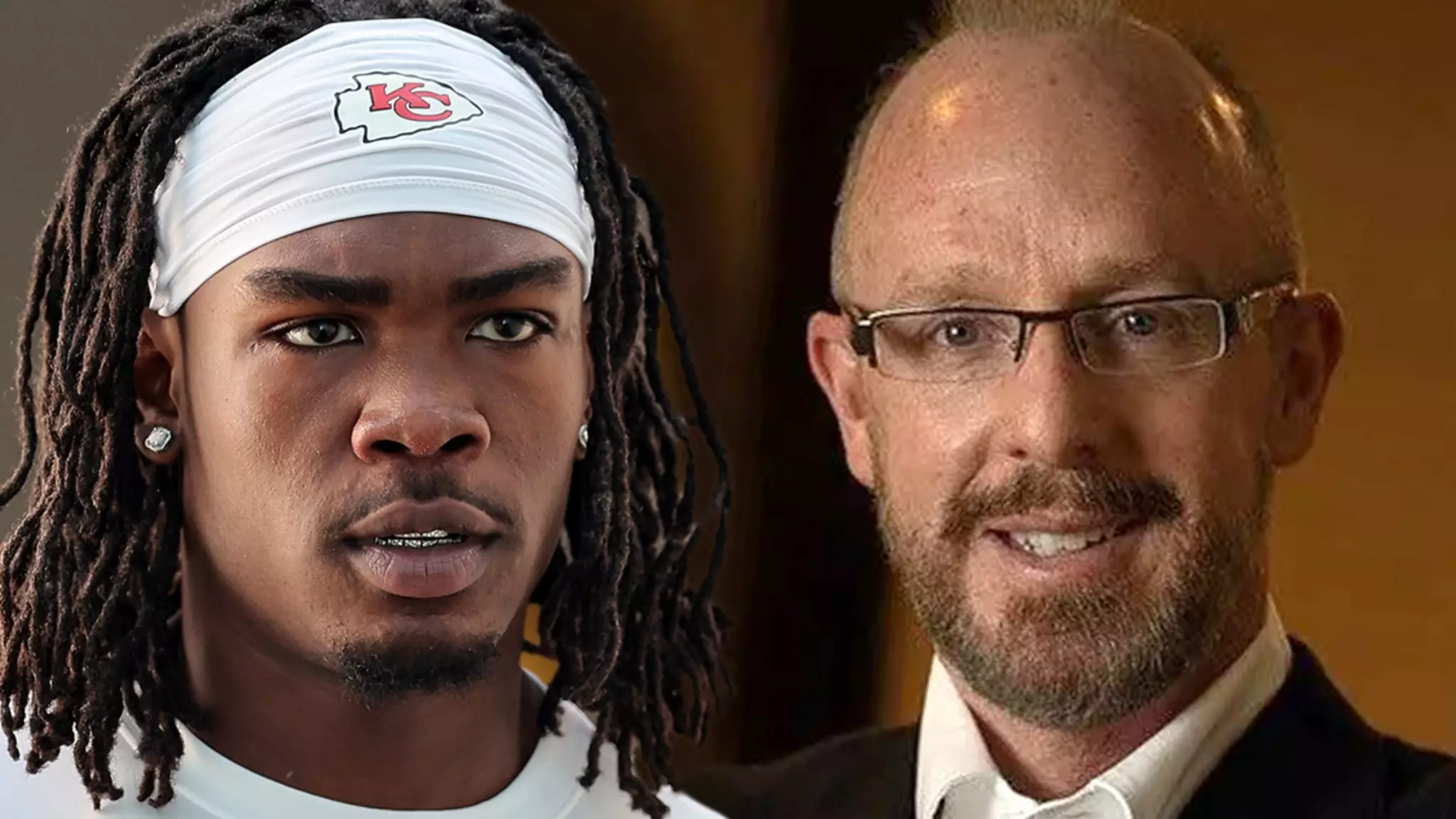The case of Kansas City Chiefs receiver Rashee Rice ignites a firestorm of questions about morality, accountability, and the shifting priorities within professional sports. On the surface, the NFL seems poised to include Rice in their opening games, despite his ongoing legal issues stemming from a serious car crash. Beneath this surface, a moral dilemma unfolds: should a player’s potential contribution on the field outweigh the severity of their off-field actions? The league’s apparent willingness to overlook Rice’s legal entanglements reveals a disturbing trend—one where athletic prowess often takes precedence over ethical considerations.
Legal proceedings reveal that Rice was involved in a high-speed crash that left a woman severely injured. His fleeing the scene denies the injured parties a semblance of justice, raising doubts about the integrity of his character. Yet, despite these serious allegations, the NFL appears reluctant to impose discipline. This raises uncomfortable questions about the league’s role as a moral arbiter; is it tolerating misconduct because of athletic talent, or is it neglecting the gravity of the situation out of a desire to maintain team competitiveness and fan engagement? The dichotomy of assessing a player’s value through performance while dismissing legal and moral failings undermines the very foundation of sports as a moral institution.
The Discrepancies in League Response: A Double Standard?
The NFL’s delayed action in Rice’s case contrasts sharply with its swift punishment of other players—a reflection of inconsistent standards that erode public trust. For instance, the suspension of Vikings wide receiver Jordan Addison, following his own legal issues, exemplifies how the league can act quickly when it deems appropriate. However, in Rice’s case, the NFL’s decision to wait until at least September 30 to evaluate his status suggests a double standard that favors players with perceived talent or marketability.
This delay creates a troubling precedent: athletes facing criminal allegations or serious misconduct may believe they can leverage their positions and influence to circumvent consequences. The league’s ambivalence not only diminishes its credibility but also signals a tacit acceptance of players’ misconduct, provided they are valuable assets. Such a stance risks normalizing behavior that should be deemed unacceptable—particularly for a league that markets itself as a pillar of community values and sportsmanship.
The Moral Implications: Playing With Fire?
What message does the NFL send when it allows a player involved in a reckless, dangerous act to participate in games amidst ongoing legal proceedings? For many, it’s a tacit endorsement of neglecting accountability. The victim’s lawyer criticizes Rice’s potential ability to “play but not pay,” exposing a troubling disconnect: the athlete’s physical recovery is prioritized over financial restitution or moral responsibility. It indicates an environment where talent confers immunity, and legal repercussions are secondary.
This attitude becomes especially problematic when considering the broader social influence of professional athletes. Their behavior extends beyond stadiums; it impacts societal norms and expectations. When league officials appear willing to overlook serious misconduct, it can inadvertently promote a dangerous culture—one where actions have little consequence if the player is valuable on the field. Such a stance threatens to erode the core principles of fairness, accountability, and justice that should underpin sports.
The Broader Impact: A Tarnished Legacy and Lost Credibility
The NFL’s handling of this case could have long-lasting ramifications. Fans look up to players as role models, embodying resilience, discipline, and integrity. Yet, allowing Rice to play amidst unresolved legal issues risks damaging this perception. It sends a message that the league values entertainment over ethics—an impression that could diminish trust among fans, sponsors, and the wider community.
Furthermore, the scandal underscores an uncomfortable truth about the professional sports industry: the prioritization of commercial interests often overshadows moral responsibility. With high-profile games like international exhibitions and marquee matchups, the league may see relief by focusing on profit and viewership rather than justice. The consequence is a blurred line between heroism and recklessness—where athletes are sometimes excused for behavior that should be met with serious consequences.
The controversy surrounding Rashee Rice epitomizes a larger dilemma faced by the NFL and professional sports: how to reconcile the pursuit of excellence with the need for moral integrity. While talent and marketability are crucial, they cannot come at the expense of fundamental values. The league’s current stance risks setting a dangerous precedent—one where justice is sidelined, and athletes are valued more for their on-field contributions than their off-field responsibility. As the season begins with these unresolved issues hanging in the balance, it becomes clear that the NFL stands at a crossroads—either to uphold its integrity or continue down a path where morality is negotiable.

